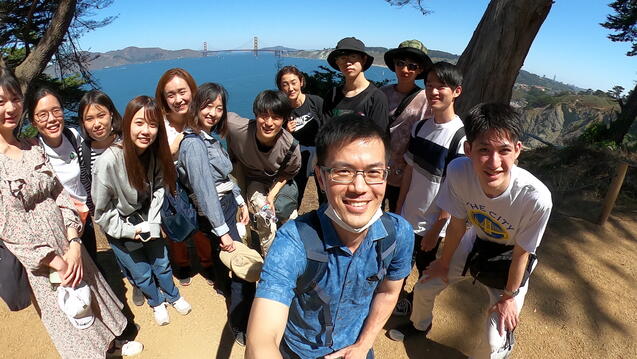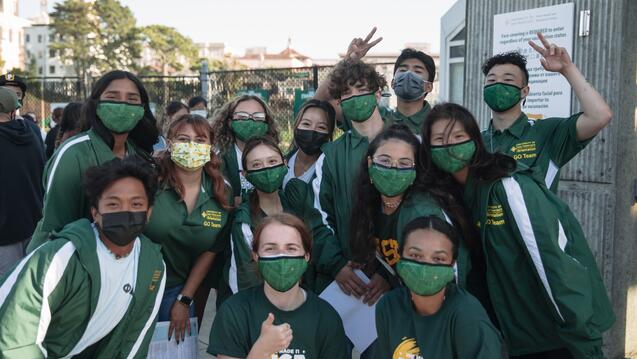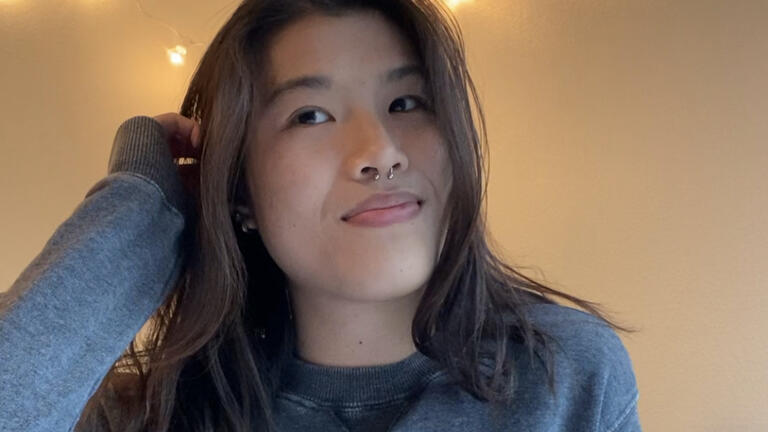
First-Generation Students Celebrate
On First-Generation College Celebration Day, Nov. 8, we recognize three first-gen students, two first-gen staff members, and one professor who helps first-generation students navigate higher education.
Grace Yam ’24

“For me, being a first-generation college student means possibility. Just knowing that I’ve broken this glass ceiling has really encouraged me to do as much as possible with everything that I have — to get involved and to put myself out there and go for it. I started out at USF in performing arts and social justice with a music emphasis. Then I talked to my adviser and learned about advertising as a way of marketing myself as a performer, so I added advertising as a second major. And then if you do the creative track in advertising, you need a minor in design, so I did that and I love that. Now I love advertising even more than I love music, and I’m thinking of going into marketing for a tech company because I’ve been doing internships for different startups since my freshman year — tech and social media and marketing.”
Najashi Belcher ’24

“I’m proud to be a first-generation college student. I came here to San Francisco from North Carolina, sight unseen. Next summer I’m going back to North Carolina to do an internship with a company that wants to reshape how the corporate world looks. I’m going to tell kids in the community that if I can do it, they can do it. They can get out of an environment that may not be safe or may not be conducive to growth. I’m studying hospitality management. I want to become a leader in an industry where you don’t see many Black people in leadership. You might see them behind the front desk or see them in the kitchen, but you don’t often see them at the headquarters or in boardrooms — yet.”
Adrian Aguinaldo ’23
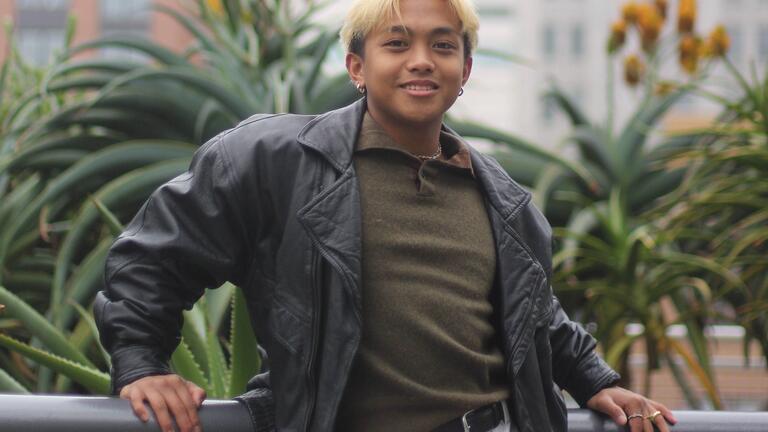
“Being a first-generation college student is partly sad but mostly happy. It’s sad because my parents didn’t get to go to college. It’s happy because they get to see me go to college. In my time at USF I’ve grown a lot. I’ve become independent — finding work to do, focusing on my studies, but also just making friends, finding organizations, finding my people. I’m a nursing major. I graduate next spring. I don’t know exactly what the future holds but I feel confident that I’m ready for it.”
Angélica Quiñónez MA ’10, MA ’14, Director, University Ministry
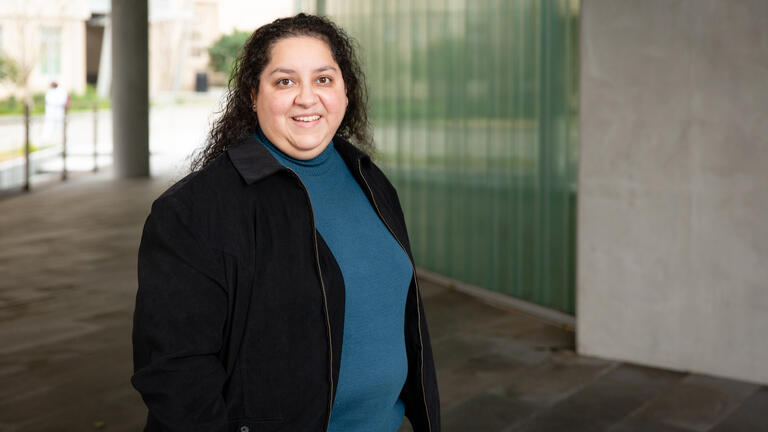
“My father is an immigrant from Guatemala. He would have finished his bachelor’s degree except he had to leave during the height of the civil war. My mother, born in Mexico, graduated top of her class at Mission High School here in San Francisco and was poised to go to college, but her father had a stroke and she had to go to work to support her family. I did what my parents weren’t able to do: I graduated from college. And then I got two master’s degrees at USF. And then I got an EdD. When I told my parents I was going back to school to get an EdD they said, ‘Are you sure? We were just happy that you got a bachelor’s degree!’ Today, at University Ministry, I mentor first-generation students at USF. Especially first-generation students of color. I help them with advice, share experiences with them. They look at me and see someone who looks like them. That’s important.”
Lydia Chung, Center for Academic and Student Achievement
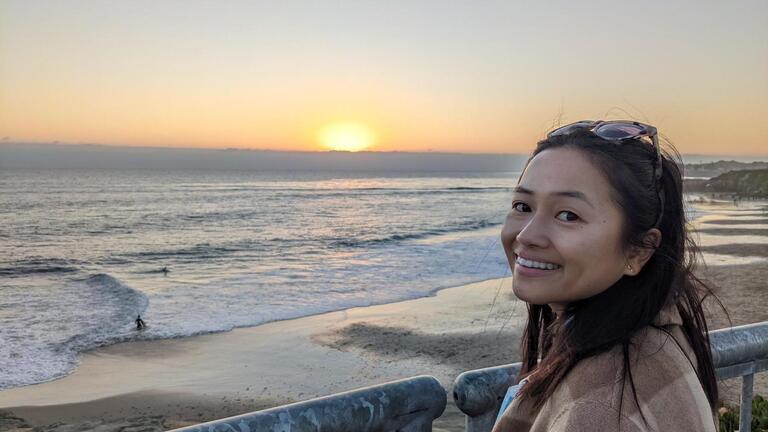
“Being a first-generation college graduate means breaking the barrier for my family. My parents were immigrants who worked hard to build a new life in America for me and my younger siblings. I graduated with a bachelor's in psychology and master’s in counseling and college student personnel. In my role as an academic success coach in CASA, I help students navigate their college experience and help them to change the world from here. USF’s practice of cura personalis — care for the mind, body, and spirit — is at the core of my work with students. I also support first-generation college students in the Muscat Scholars program. They are near and dear to my heart as someone who identifies as first-generation.”
Timothy Tung MA ’13, Term Professor, Economics
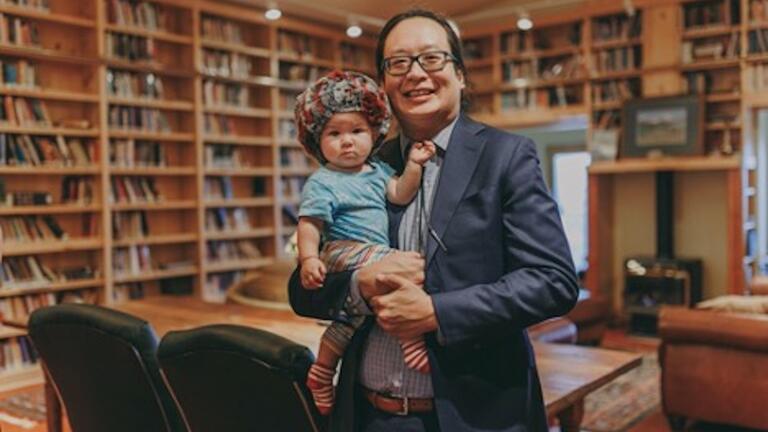
“I myself am not a first-generation student but I have been working with first-gen students for all of my teaching career. I help students in economics in particular, but I also help students in other programs with whatever questions they have and whatever academic challenges they face. I find that many first-generation students are fiercely independent. They’ve spent years doing things for themselves without any help from anyone, so they can be reluctant to ask for help. I show them that it’s OK to ask for help. I also urge other professors on campus to look out for first-generation students and support them if they’re struggling. We should see those students — see them and hear them.”

